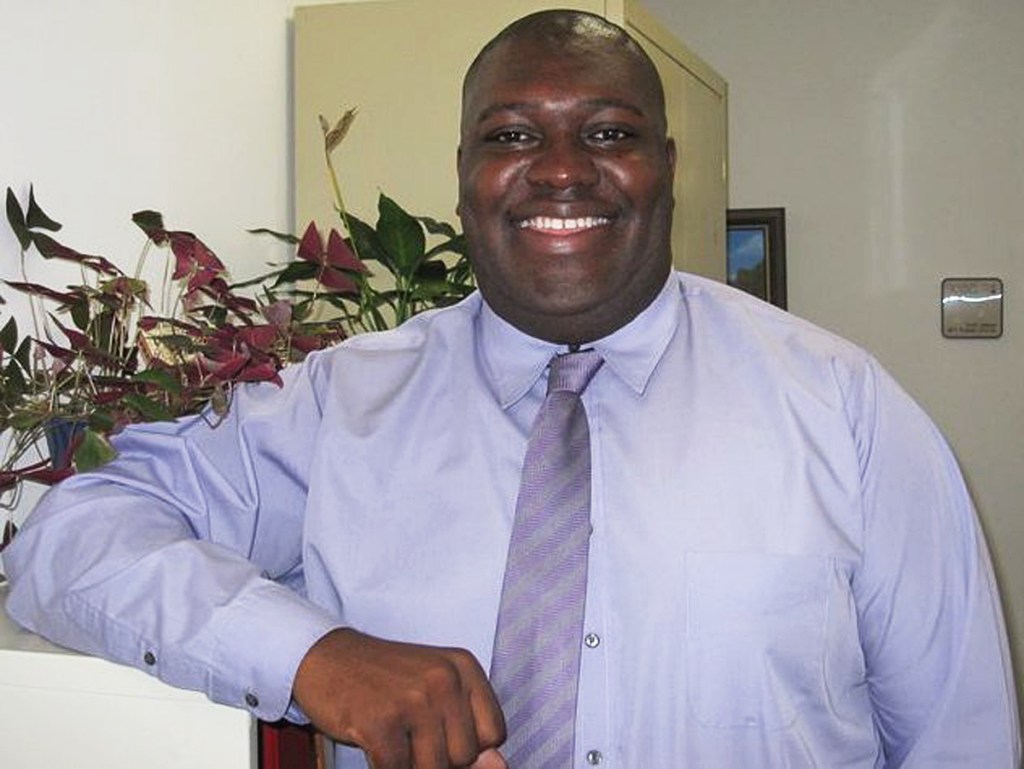Less is ‘Moore’
Published 12:00 pm Sunday, April 24, 2011

- Darren Moore is shown before his weight loss.
Last summer, Darren Moore had a lot on his mind.
At 26 years old, he weighed nearly 375 pounds. He had tried numerous diets. He had experienced little weight loss but a lot of frustration.
Moore had put on an additional hundred-plus pounds in college, going from 220 or more pounds to 340 pounds by his senior year. More weight came while working as a marriage and family therapist and continuing his doctorate studies through Virginia Tech.
As a therapist working in South Georgia, the Minnesota native knows people can change their lives. Moore knew he could change his life if he found the right program.
Searching the Internet, Moore found an Albany doctor to help him lose weight. Traveling to Albany weekly for his work, he has visited this doctor weekly.
From his first visit in September 2010 to this past week, Moore has lost 146 pounds. He started at 374.8 pounds and now weighs 228.8 pounds.
Initially, Moore set his goal weight at 225 pounds. Less than four pounds from 225, he has set a new goal: 210 pounds.
“Some people have told me not to lose any more weight, but I never thought I could lose this much weight,” Moore says during a visit to The Times offices last week. “So, I have changed my ideal weight to 210.”
Every day, he lives by his motto, a play on words using his name: “Less is ‘Moore.’”
Losing 146 pounds hasn’t been easy. Neither was losing the first 10, or 50. Moore doesn’t call his journey a diet. He calls it a change in lifestyle. A change in the way he lives.
Granted, eating less is part of this change.
Moore went from eating several helpings at a meal to eating 500-800 calories a day.
He moved from large portions to weighing foods for caloric content.
He doesn’t just order food from a restaurant menu. Moore visits the restaurant’s website prior to the meal. He determines a dish’s calories before visiting the restaurant. Then, he may eat only a percentage of the meal instead of the entire serving.
He has refused to eat the foods he has missed most: Doritos and Reese cups. He will not even allow a taste of either item. “They are just too intense to me,” Moore says. “I don’t think I could eat only one. One would lead to three or four or more. So, I leave them alone.”
He eats meats, vegetables, fruits. Meats include salmon, shrimp, crab, chicken, turkey, beef, lamb, but no pork. No fried foods. He usually prepares meats on a George Foreman grill to remove grease.
He drinks no sodas. No juices. He drinks only water. Lots of water.
Moore allowed himself a treat during the Christmas holidays. Traveling home to see his family in Minnesota, he ate his mother’s home-cooked holiday meal. It was the only week in the past seven months that he gained a small amount of weight. Otherwise, he has lost weight each week he’s stepped on the scale.
Seeing the weight loss inspired him to continue. Moore says he lost more than 10 pounds during the first week. He had never experienced losing that much weight in a week. “That made me want to continue,” Moore says. “People want to see results. They want to see the payoff. They don’t want to diet with a promise of losing only six or eight pounds in a month. That’s why so many people quit. On other diets, I would do it for two or three weeks then quit because I didn’t see that payoff.”
Visiting the Albany physician each week, Moore feels accountable to someone. Dieting without supervision, Moore felt no one else would know if he didn’t lose weight. Meeting someone weekly, Moore feels compelled to lose weight rather than explain why he hasn’t lost weight.
Exercise is part of the equation. Moore exercises three times weekly. Cardio, mostly. He spends most of his time on an elliptical machine. He doesn’t care much for the treadmill. He walks and occasionally jogs. Once he reaches his ideal weight, Moore will begin weightlifting to tone his body.
In addition to changing one’s life to lose weight, dramatic weight loss changes a person’s life.
Moore has dropped eight pants sizes and seven shirt sizes. He no longer must shop in big-and-tall shops but can buy clothes from regular stores. Still, he doesn’t perceive himself as being different from when he weighed nearly 400 pounds.
“I think I’m the same person,” Moore says, “but then people see me as a different person.”
Looking at a photograph taken before his weight loss, you can see a resemblance between the larger man in the picture and the man seated before you. But the difference seems striking.
Comment on the difference, Moore smiles and shakes his head. “It doesn’t seem that much different to me.” Nodding toward the photo, “I don’t feel I’ve changed that much.”
He feels the change. Moore says he feels healthier. He has more energy, more stamina. He feels stronger. He can do more and live a more active life.
Moore is in a supportive relationship that began before his weight loss. Balancing a relationship with weight loss is important. With weight loss being a lifestyle change, it also changes the dynamic of the relationship. If a dating couple eats primarily in restaurants, that changes. In a live-in relationship, if one person is losing weight but the other is not, it affects groceries and what foods can be in the house.
Many people’s primary relationships revolve around food, Moore says. Losing weight changes everything in how this important aspect of a relationship works. Without support and understanding, either the weight loss or the relationship may fail.
Moore has found balance in his relationship and in the rest of his life.
His doctoral dissertation will focus on how men’s weight affects their relationships. He will soon look for people to participate in this study.
As for himself, Moore did not grow up as an obese child. He describes himself as being “maybe a little chubby” as a youngster. In college, he faced several challenging issues. He confronted them by eating.
“I had a lot of things going on in my personal life in college,” Moore says. “… I think people do emotionally eat and eat to cope.”
He does not see that happening again.
“Oh, no, I’m not going back there,” he says.
Upon reaching his ideal weight of 210, Moore will be able to increase his daily caloric intake so he can maintain the weight rather than lose more.
But he will not increase it by much, he says. He will remain true to his new life mantra: Less is Moore.
To contact Darren Moore, regarding his weight loss or study, email ddmoore@vt.edu





